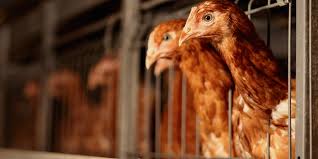Salmonella outbreaks linked to backyard poultry have affected over 100 people, raising concerns about the safety of keeping chickens and other birds at home. In this article, we explore the causes of these outbreaks, their impact on public health, and measures to prevent future incidents.
Understanding Salmonella Outbreaks
What Is Salmonella?
Salmonella is a bacteria commonly found in the intestines of animals, including poultry. It can cause food poisoning when humans consume contaminated food or come into contact with infected animals or their environment.
Backyard Poultry and Salmonella
Keeping backyard poultry has become increasingly popular in recent years, with many people raising chickens for eggs, meat, or as pets. While backyard poultry can be a rewarding hobby, it also poses risks of salmonella transmission.
Recent Outbreaks and Public Health Concerns
Scope of the Outbreaks
In recent months, multiple outbreaks of salmonella infections linked to backyard poultry have been reported across the country. These outbreaks have affected over 100 individuals, leading to illnesses and hospitalizations.
Risk Factors
The close proximity between humans and backyard poultry increases the risk of salmonella transmission. Handling birds, eggs, or contaminated surfaces without proper hygiene practices can result in infection.
Preventing Salmonella Infections
Practicing Good Hygiene
To reduce the risk of salmonella infections, it is essential to practice good hygiene when handling backyard poultry. This includes washing hands thoroughly with soap and water after handling birds or their eggs, as well as avoiding contact with poultry feces.
Educating Poultry Owners
Poultry owners should be educated about the risks of salmonella and the importance of proper hygiene practices. Informational resources and guidelines can help raise awareness and promote responsible poultry keeping.
The recent salmonella outbreaks tied to backyard poultry highlight the importance of vigilance and proper hygiene practices in preventing foodborne illnesses. By taking appropriate precautions and promoting awareness, we can mitigate the risks associated with keeping poultry at home




